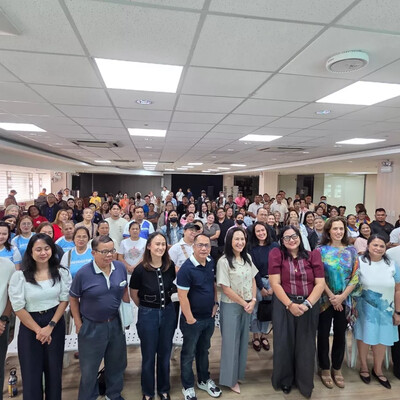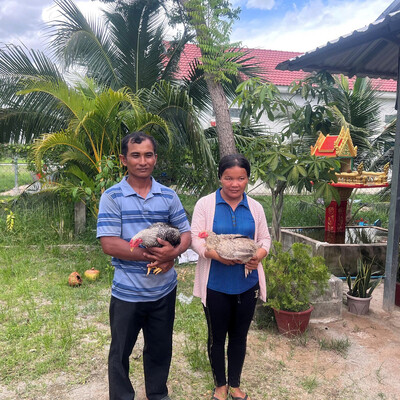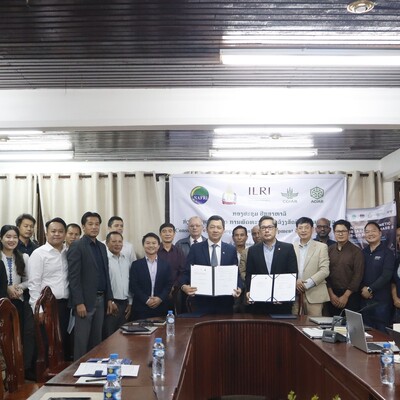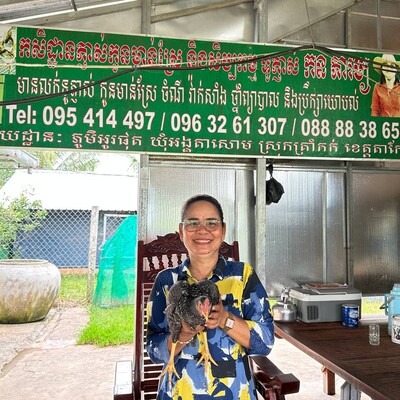

Second phase of ResComm agroecology project focuses on smallholder livelihoods in central Tanzania
The International Livestock Research Institute (ILRI) has launched the second phase of its ‘Enabling a resilient and prosperous community through participatory agroecological practices in the semiarid region of central Tanzania’ (ResComm II) project. ResComm II uses community-based agroecological approaches to improve food and nutritional security, and is being integrated into Tanzanian government initiatives.
Dodoma region, where the project is based, is heavily reliant on agriculture, and food security is one of the primary goals of Tanzania’s Development Vision 2020–2025. ResComm II will work with farmers, researchers, government and private sector experts to transform agriculture and promote sustainable landscape management.
The project will be implemented in eight villages of Kongwa District (Sagara A, Sagara B, Moleti, Lengaji, Laikala A, Laikala B, Ng'humbi and Mlali) and three villages in Mpwapwa District. It will run from 2024 to 2026.
During the launch in Lengaji Village, Kongwa District on 17 April 2024, Anthony Whitbread, leader of the Sustainable Livestock Systems Program at ILRI highlighted the project's dual focus on nutrition and income opportunities. ‘The purpose of this initiative is to demonstrate the potential outcomes of approaching challenges faced by farming communities collectively and collaboratively.’
Patrik Aus der Au, representing the Liechtenstein Development Service (LED), one of the project partners, commended the project's focus on integrating agroecological practices to address climate change challenges. And District Commissioner Mayeka Simon Mayeka reiterated the importance of addressing climate variability, urging farmers to use improved seeds and appropriate farming practices advocated by the project to increase productivity.
Over 200 participants attended the launch and visited model farms to witness the impact of technologies designed to address climate change challenges. For example, the technology of waterproofing construction has helped smallholder farmers and livestock keepers increase productivity and improve soil health.
Henry Limubi, who owns one of the model farms, said ResComm I—the first phase of the project—had turned things around on his smallholding.
‘Climate change has made farming more challenging but adopting agroecological practices has improved my yields, resulting in higher income. Waterproofing prevents soil erosion and using improved seeds has increased productivity on my farm.’
Janeth Musa Yusufu, a farmer from Lengaji village who cultivates sorghum and maize pledged to apply knowledge from Ress Comm II believing that Ress Comm II has come at the perfect time.
‘It is a good opportunity to women farmers to learn good agronomic practices. I would like to ask the project implementors to put many efforts on capacity building to enhance awareness creation in our villages. I believe this is going to change our lives.’
ResComm II, funded by Biovision and LED, builds on the achievements of ResComm I (2021-2023). It will be implemented by ILRI in collaboration with Tanzania Agricultural Research Institute (TARI), the International Crops Research Institute for the Semi-Arid Tropics (ICRISAT), the Tanzania Livestock Research Institute (TALIRI) and Sustainable Agriculture Tanzania (SAT).
You may also like
Related Publications
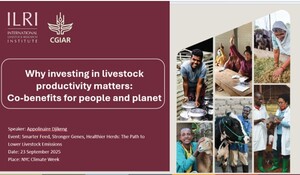
Why investing in livestock productivity matters: Co-benefits for people and planet
- Djikeng, Appolinaire
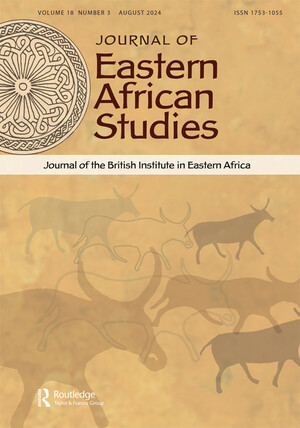
The moral economy behind the commoditisation of camel milk in northern Kenya
- Mohamed, Tahira Shariff
- Nori, Michele

A positive deviance approach to understand gender relations and practices that support transformative adaptation: Insights from Kenya dairy households
- Bullock, Renee
- DuttaGupta, Tanaya
- Miriti, Philip





